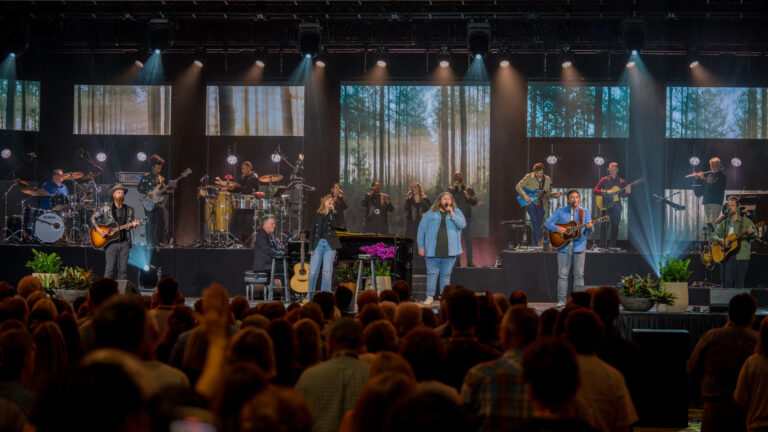There’s an underreported ministry practice that has surged in the days since COVID-19 arrived in the United States: the prevalence of pastors committed to calling all of their church members.
Research has shown a surge in the technological capabilities and adoption of churches across the country. Even congregations that had never live-streamed a worship service embraced new technology and did whatever was necessary in order to maintain a semblance of community worship.
But the most interesting and underreported aspect in these developments has been the reliance on old technology—the phone—in order to keep in touch with church members.
- In smaller churches across the country, pastors decided to communicate with every church member once a week, placing priority on those who were enduring the lockdown alone.
- In medium-sized churches, the decision was to divvy up the church directory so that all members of the pastoral staff could reach out by phone call, text message, or voice mail to everyone in the congregation.
- Larger churches ensured that everyone was contacted by enlisting lay leaders, teachers, and deacons to help with the task.
Not all church leaders decided on this course of action. Some churches tried to reach out weekly, while others went for a biweekly or once-a-month approach. Some churches relied more on social media to keep people connected and informed. Others focused attention on emailing important information to the church overall. Many churches combined all of these efforts.
Holy Task of Listening
In Outreach Magazine, Brady Boyd, pastor of New Life Church in Colorado, testifies to the impact this practice has made on his congregation:
In this era of livestreaming and social media, none of us would have imagined that a simple phone call could save our church. . . . We decided during the first week of the pandemic to simply pick up the phone and call everyone in our church. Weeks later, we were still getting messages from our members retelling those sacred exchanges.
We rediscovered the power of personal conversations. We listened to their stories, heard their concerns and fears, and ended every phone call with pastoral prayer. We realized, again, that shepherds must know and nurture the sheep. As it turned out, our modern technology was not enough. Our church needed outbound phone calls. We needed to rediscover the holy task of listening.
Calling thousands of people in a short time was a daunting assignment, but we had extra time because all other programming came to a sudden stop. We had time to linger with people, time to cry with them, to chronicle and respond to their practical needs. Turns out, people needed to know we cared before they cared about our online content.
There’s something beautiful in this return to the basics, and I suspect a good number of church leaders may be asking how we ever lost sight of this point of connection.
Power of a Pastoral Visit
Many pastors in previous generations were known for visiting the homes of their church members. In the Romanian villages where I served as a college student, the pastor (who usually lived in the city and would commute to one or more villages to give pastoral oversight) would “make the rounds” every few months to all of the families in the church, either by dropping in for casual conversation and prayer or by joining a family for lunch after a Sunday service. By devoting one day a week to leading worship and checking in on different families, the pastor’s presence was notable. Even better, the pastor and the members were encouraged by these visits.
Erik Raymond points out why calls or visits are so uplifting:
- These meetings are not because of issues, therefore, they tend to be encouraging. Just the fact that we are not meeting because someone is upset or has done something changes the tone. Everyone tends to be at ease and freely able to focus on what is important.
- They tend to cut through our polite superficiality.When I call the meeting, people are much more willing to get down to business about how they are doing following Jesus. If we bump into each other in the hall, it’s always polite, but if we are sitting at their kitchen table, we are going to talk. I love hearing what our church members have to say.
- You hear what is truly valuable.With a shorter meeting (an hour or so) there is not a lot of time for fluff. Often when I come, the member(s) will have questions or items that they would like prayer for. What a blessing as a pastor to begin walking our members through something at the early stages.
Greg Forster recommends workplace visits in addition to homes, not so that the pastor becomes an expert in the work of his people, but in order to “become conversant enough with the workplace context to apply your teaching and pastoral care to it.”
Call everyone in the church? Visit everyone’s home? Visit workplaces, too? I realize that many pastors may shake their head at the thought of adding that much responsibility to a week already filled with sermon preparation, leader training, hospital visits, community outreach, and other meetings. That’s why this kind of ministry shouldn’t be on the shoulders of just one individual, especially in medium- and larger-size churches. But calling and visiting is still part of the pastoral task. It’s part of what makes someone a pastor and not just a preacher or a leader.
No Digital-Only Discipleship
Digital resources and online technology can serve us well. But discipleship, ultimately, is analog. It can’t be digital-only. It’s not just about watching the sermon online or picking up the best Bible study. We need more than good content in order to be discipled; we need godly Christians. A live-stream service may aid in our discipleship process, but we need real-life, flesh-and-blood, Spirit-filled Christians who have personal and pastoral conversations with us if we’re going to be more like Jesus.
So, whenever COVID-19 has moved from the headlines into history, let’s remember what we’ve learned this season. Let’s not undervalue the power of a pastoral visit and the impact when a shepherd picks up the phone to check on the sheep.
If you would like my future articles sent to your email, please enter your address.

















